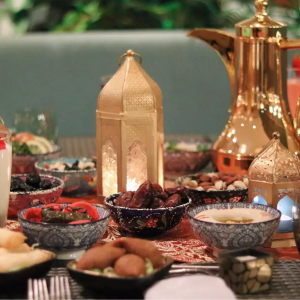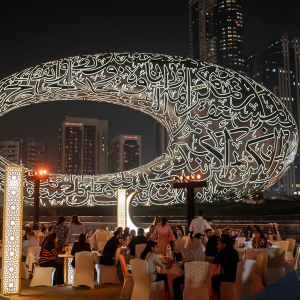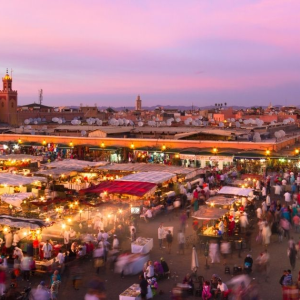Dubai is a land of dreams for many. With its dazzling skyline, tax-free income, high-end lifestyle, and global exposure, it attracts thousands of expats every year. But behind the glossy Instagram reels and glamorous brunches lies a harsh truth: living in Dubai comes at a cost. And it’s not just financial. For many, the struggle to maintain a decent lifestyle while chasing dreams means constant hustle, emotional discipline, and sacrifices.
So, how much salary is actually “enough” to live a decent life in Dubai? The answer isn’t as simple as a number—it depends on your lifestyle, family status, spending habits, and most importantly, your emotional and mental expectations.
Let’s break it down from the lens of real people, real stories, and real survival math in Dubai.

A City of Opportunities, But Also Pressures
Dubai offers opportunities like few other places. With a strong economy, thriving job market, and world-class infrastructure, expats are drawn to it from every corner of the globe. But with these opportunities comes pressure—pressure to look good, to live well, to network, to hustle, and to constantly keep up.

The average expat salary in Dubai varies greatly depending on the industry. A junior admin assistant might earn AED 4,000 per month, while a senior manager in the tech sector can take home over AED 35,000. But is earning AED 10,000 enough? What about AED 20,000?
Let’s explore different income brackets and how people actually live.
Earning AED 5,000 – 8,000: Survival Mode
This is the salary bracket many junior-level professionals or fresh expats start with. It covers roles like customer service reps, teachers, junior accountants, and some support staff.
Rent alone can eat up more than half the salary. A shared room in a flat in areas like Al Nahda or Bur Dubai can cost between AED 1,000–2,000 per month. Add transport, groceries, a mobile plan, and occasional leisure, and you’re left with almost nothing for savings or emergencies.
One expat from the Philippines working in retail on AED 5,500 shared:
“I live with five others in a shared flat. It’s not ideal, but I send money home every month. I hardly eat out and avoid malls to save. I feel proud but also exhausted.”
People in this range survive—but they sacrifice comfort, privacy, and peace of mind. Burnout is common.

Earning AED 10,000 – 15,000: Stability, But Still Counting Dirhams
This is the most common salary range for mid-level professionals like teachers, sales managers, nurses, and operations executives.
With this salary, you can rent a studio or one-bedroom apartment in decent areas like Al Barsha or Jumeirah Village Circle for AED 4,000–6,000. You can afford groceries, car installments or ride-hailing, dine out once a week, and maybe travel once a year. But you still live within a budget.
An Indian expat working in digital marketing on AED 12,000 shared:
“I live alone in a one-bedroom flat. It’s okay, but I keep track of every dirham. Rent and car EMI take a big chunk. I love my job but I still hesitate before buying anything unnecessary.”
People in this bracket have basic comforts, but luxury is limited. Mental pressure comes not from poverty, but from constantly comparing with peers who earn more.
Earning AED 20,000 – 30,000: Comfortable But Not Rich
This is the sweet spot for many mid to senior professionals, and dual-income couples. You can live in a good apartment or townhouse, dine out freely, afford gym memberships, Netflix, salon visits, and take holidays to Europe or Southeast Asia.
However, Dubai’s lifestyle inflation hits hard. Even at AED 25,000, you might still feel broke if your friends drive luxury cars or shop in Dubai Mall.
A Lebanese expat couple earning a combined AED 28,000 shared:
“We live in Jumeirah Lakes Towers in a 2-bedroom apartment. We save around AED 4,000 monthly, but there’s always pressure to upgrade—be it gadgets, brunches, or destinations. The city makes you want more.”
This salary range allows you to balance comfort, savings, and enjoyment—but emotional discipline is key to avoid falling into the trap of endless spending.
Earning AED 35,000+: Living the Dubai Dream?
At this stage, you can afford to live in areas like Downtown Dubai, drive a luxury car, eat at fine-dining restaurants, hire help at home, and send your kids to international schools.
But even high earners face lifestyle fatigue. Salaries go up, but so do expenses. School fees can be AED 50,000–100,000 per child per year. A 2-bedroom in a premium tower can cost AED 120,000–150,000 yearly. Car loans, personal loans, and credit card debts often follow.
A British expat in the finance industry earning AED 40,000 monthly shared:
“I’ve been in Dubai for 9 years. Yes, the money is great. But the city constantly pushes you to do more, achieve more, spend more. It’s exciting but also draining. Sometimes, I crave a simpler life.”
The Invisible Cost: Emotional Burnout and Loneliness
No matter the salary bracket, many expats in Dubai silently battle emotional challenges. The pressure to constantly perform, stay relevant, and appear successful is real. Social media glamorizes every brunch, beach day, and yacht party—but behind closed doors, many struggle with loneliness, anxiety, and burnout.
Therapy is still taboo in many cultures, and many suffer silently. Several community platforms and wellness coaches have now emerged in Dubai to help, but access and affordability remain issues—especially for those in lower income brackets.

Struggles and Sacrifices: Beyond the Numbers
The Dubai story isn’t just about salaries. It’s about the people—nurses working double shifts to send money home, engineers sharing flats while building careers, influencers juggling part-time jobs to stay afloat, and entrepreneurs risking everything to make it big.
It’s about parents missing school plays back home, solo women navigating a new culture bravely, and dreamers sleeping four to a room just to afford that one big chance.
Success stories exist—and they are inspiring. But they often come with invisible sacrifices.
How Much is Enough Then?
So, what’s the answer?
For basic survival: AED 5,000–7,000 if you share accommodation and cut down on all luxuries
For a modest, independent life: AED 10,000–15,000
For a comfortable lifestyle with savings: AED 20,000–25,000
For luxury living and family support: AED 35,000+
But no number guarantees happiness. The real challenge is not just affording rent or groceries, but managing emotional wellbeing, dealing with expectations, and staying true to your personal goals.
Achievements That Inspire
Despite the costs and struggles, many expats in Dubai are achieving incredible things. From launching businesses to supporting families across continents, from building content brands to buying their first homes, their stories are filled with grit and growth.
A Pakistani entrepreneur started his logistics company with just AED 5,000 in savings—today he employs 30 people.
A Kenyan teacher on a modest salary saved for 6 years and now owns property back home.
An Indian content creator quit her job, built her brand in Dubai, and now earns through brand collaborations and writing.
These stories remind us: it’s not just about how much you earn, but how smartly and purposefully you live.
The Bottom Line: It’s a City That Gives, But Demands
Dubai offers immense opportunities—but it also tests your discipline, mental strength, and clarity. You can live in luxury or scrape by in survival mode. The line between both is thinner than you think.
If you’re dreaming of moving to Dubai, ask yourself:
Are you ready to live mindfully? Can you resist lifestyle pressure? Do you know your financial and emotional limits?
Because in Dubai, it’s not just about making money—it’s about making it count.
Follow us on instagram: UAE STORIES













